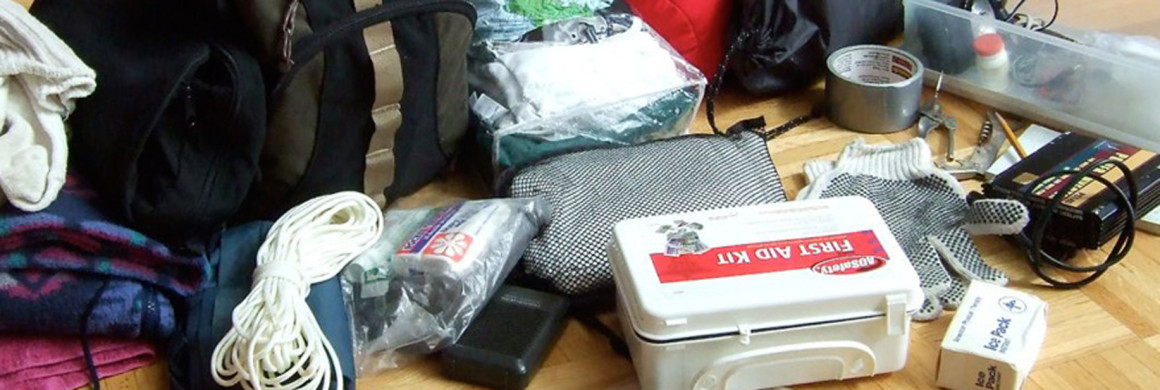Emergencies, whether caused by a storm, wildfire, or other event out of our hands, are not the time to start making plans and buying supplies. It’s important to be prepared for an emergency, a time when your farm might be without electricity, running water, or accessible roads, before trouble strikes. Here are some emergency preparedness tips for horse owners to consider.
Keep feed, hay, and medications well-stocked. The Humane Society of the United States recommends keeping several days’ worth of feed and necessary medications on-hand. Should your farm suddenly be cut off from easy access to the feed store or that prescription delivery your horse relies on, you’ll have some breathing room while the authorities are clearing the roads and supplies are returning to the area. Keep in mind that if you live at the far end of a supply chain, stores may be low on necessities even though the emergency did not occur in your immediate area.
Prepare an emergency first aid kit. Your tack room is probably already well-stocked with all sorts of lotions, potions, wraps, and bandages. Still, a portable first aid kit which is set aside specifically for emergencies will keep you from wasting valuable time sorting through your supplies and filling a go-bag with the necessities. Order one pre-made from an equestrian company or assemble your favorite supplies in one sturdy bag. Don’t forget bandages and helpful extras like scissors, waterproof tape, and a flashlight.
Have a back-up water source. A stuffed feed room and a full hayloft won’t help if you aren’t able to fill water buckets. If your barn’s water supply depends on an electric well, where will you hook up the hose if the power goes out? Keep some water storage options at the barn, whether it’s a purpose-made tank, or a few clean trash cans with lids. If you have a natural water source on your property, you can take your horses to drink several times a day while your running water is out — just take care to know what’s happening upstream to avoid taking horses to contaminated water.
Keep an emergency tool kit handy. Violent weather and frightened horses can lead to damaged fencing, doors, sheds, and barns. Always have a kit with hammer, nails, saw, and additional fencing material available. You might also want to invest in emergency fencing material or gates to create corrals in a hurry. And don’t forget the batteries and flashlights!
The time to look around your farm and start making a disaster plan is today. With a little investment, you and your horses will be safer in the long run.


